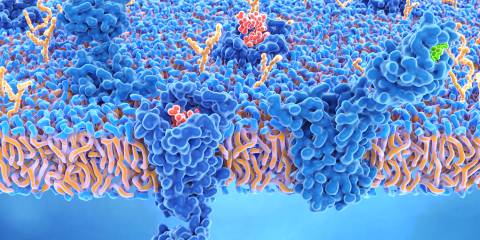Everyone knows we need protein for energy and growth, but we also need it to obtain amino acids. Our bodies use amino acids to break down food, reduce fatigue, and repair tissue and muscles, among many other functions.
Aminos Equal Energy
Several recent studies have demonstrated the value of supplemental amino acids for athletes.
L-carnitine
L-carnitine is a naturally occurring amino acid. Nearly all of the L-carnitine in the body is found in muscle tissue, and its main role is to transport fatty acids into the mitochondria of cells so that it can be burned for energy.
L-carnitine has been linked to beneficial effects on sports performance, especially with long-term use. A recent review of studies found that L-carnitine may aid in recovery after high-intensity exercise. Researchers also determined that L-carnitine eased muscle soreness and increased blood flow. It also helped reduce body weight and physical and mental fatigue in older adults.
Previous research indicates that L-carnitine may boost maximum oxygen consumption and power output.
Beta-alanine
Beta-alanine is an amino acid that is indirectly involved in supporting muscle endurance during periods of high-intensity exertion. It’s produced naturally in the body and can also be found in fish, meat, soybeans, and poultry, as well as in dietary supplements.
A recent study found that beta-alanine supplementation boosted exercise capacity and eliminated executive function declines typically induced by endurance exercise in healthy adults. An earlier review of randomized trials found that beta-alanine may increase power output and working capacity while decreasing feelings of exhaustion and fatigue. Based on the results of that review, researchers determined that supplementation with beta-alanine may increase athletic performance.
Amino Acids Are Life’s Building Blocks
Scientists have classified amino acids into three groups—essential, nonessential, and conditionally essential (sometimes called semiessential)—and we need them all. Essential amino acids cannot be made by the body, so we must get them through diet. When we consume protein, our bodies break it down into amino acids and then use those amino acids to build the specific proteins we need.
The nine essential amino acids are histidine, iso-leucine, leucine, lysine, methionine, phenylalanine, threonine, tryptophan, and valine. All nine can be found in soy products, meat, fish, seafood, milk, and eggs. Plant foods, such as vegetables and legumes, also contain some of the nine but not all of them. Essential amino acids are widely available as dietary supplements.
Branched-Chain Amino Acids Are Powerful Essentials
Branched-chain amino acids (BCAAs) are one group of essential amino acids that may help boost sports performance. BCAAs are commonly used to fight fatigue and aid muscle recovery after exercise. Valine is involved in energy production and helps grow and regenerate muscle tissue; leucine aids the body in synthesizing protein and helps repair muscles; isoleucine is concentrated in muscle tissue and helps regulate energy consumption.
A recent study found that young men who received BCAA supplements either before or after exercise experienced significantly improved delayed onset muscle soreness and exercise-induced muscle damage. The study also confirmed that supplementing with BCAA before exercise is more beneficial than after.
A 2017 meta-analysis of eight trials found that BCAAs were more effective at reducing soreness and muscle power loss after exercise than passive recovery or rest. Previous research found that BCAAs also reduce perceived exertion and mental fatigue, and improve anabolic response during the recovery period.




